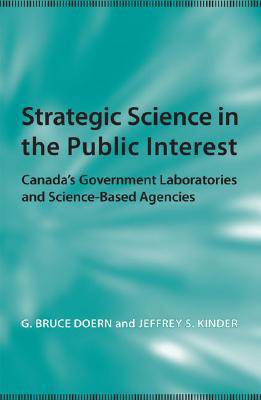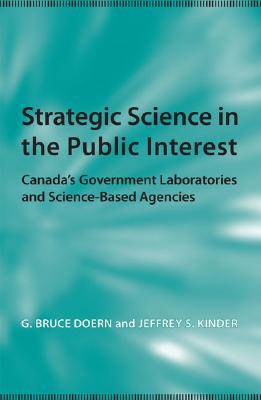
- Retrait gratuit dans votre magasin Club
- 7.000.000 titres dans notre catalogue
- Payer en toute sécurité
- Toujours un magasin près de chez vous
- Retrait gratuit dans votre magasin Club
- 7.000.000 titres dans notre catalogue
- Payer en toute sécurité
- Toujours un magasin près de chez vous
Description
The past twenty years have seen considerable shifts and struggles in 'government science' - that is, in the way the state funds, supports, regulates, conducts and uses scientific and technological activity. Focusing on federal labs and agencies, Strategic Science in the Public Interest explores how these labs have been located within, and often buried by, the larger commercially-focused federal innovation agenda.
G. Bruce Doern and Jeffrey S. Kinder examine four labs whose mandates deal with the Alberta oil sands, environmental technologies, wildlife research, and mining and metals, respectively. The authors use these cases to explain why a better middle-level approach to analysis is needed for strategic public interest-centred government science. They illustrate the importance of understanding the variety, as well as the similarity, of federal science and technology labs and agencies, and of instituting policies that reflect this diversity. The growing importance of Related Science Activities (RSA) is also explored, as well as the core trade-offs between commercial and public goods science in their mandates and their internal capacities.
Spécifications
Parties prenantes
- Auteur(s) :
- Editeur:
Contenu
- Nombre de pages :
- 224
- Langue:
- Anglais
Caractéristiques
- EAN:
- 9780802088536
- Date de parution :
- 01-06-07
- Format:
- Livre relié
- Format numérique:
- Genaaid
- Dimensions :
- 161 mm x 236 mm
- Poids :
- 521 g







